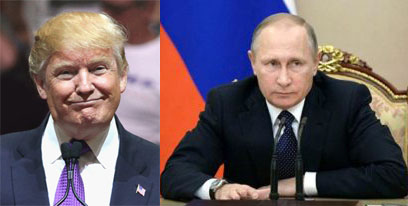A nation must think before it acts.
In a nutshell, the crisis in relations between Russia and the West is two-fold. First, there’s the Kremlin’s perception that the United States and Europe are set to undermine the survival of Putin’s regime. In return, the Kremlin has mobilized its own resources to undermine whomever it considers hostile in Europe and the United States. Second, there’s the clash of their visions for a specific group of states in between Russia and Europe: Armenia, Azerbaijan, Belarus, Georgia, Moldova, and Ukraine. Russia has considered American and European economic assistance and democracy promotion as threatening to its position in the neighbourhood.
As Donald Trump took office on January 20, celebrations were under way in Moscow in honour of the new president of the United States. In a cheerful atmosphere guests paid tribute to notorious cyberhacks by wearing Guy Fawkes masks and posed in front of matching paintings of President Trump, President Vladimir Putin and far-right French presidential candidate Marine Le Pen. President Trump’s campaign statements of “getting along” and “making a deal” with Putin were enough to worry US and European political elites traditionally critical of Russia’s actions in the region.
However, the anxieties of Trump-Putin “bromance” may be premature, especially if the inaugural speech underlining American interests as paramount is any indication of the yet-to-be formulated US foreign policy. Moreover, if his nominees for the Secretary of State, Ambassador to the United Nations, Defense Secretary and Treasury Secretary adhere to their statements made during confirmation hearings, relations with Russia will not involve succumbing to Putin’s will. Furthermore, an overly conciliatory approach to Russia may not sit well with Congressional Republicans who criticised Russia over its actions in Ukraine and readily imposed sanctions (after all, sanctions do not really hurt the US economy). On January 22 Democratic Senator Chuck Schumer said he would propose a bill supported by Republican Senators John McCain and Lindsey Graham that would limit President Trump’s ability to singlehandedly lift the sanctions.
Continue reading, “Trump-Putin Deal: Easing Tensions with Restrained Engagement: Opinion”




